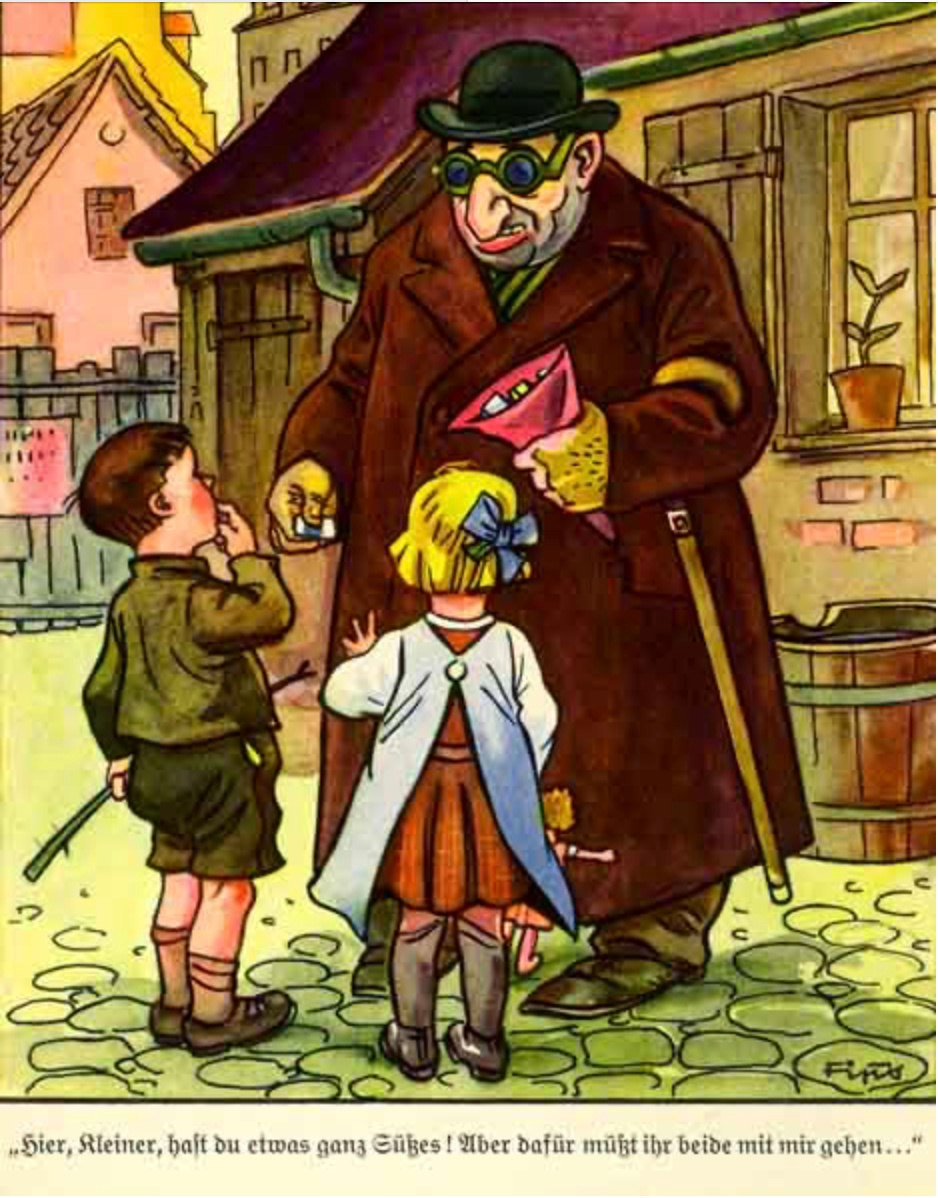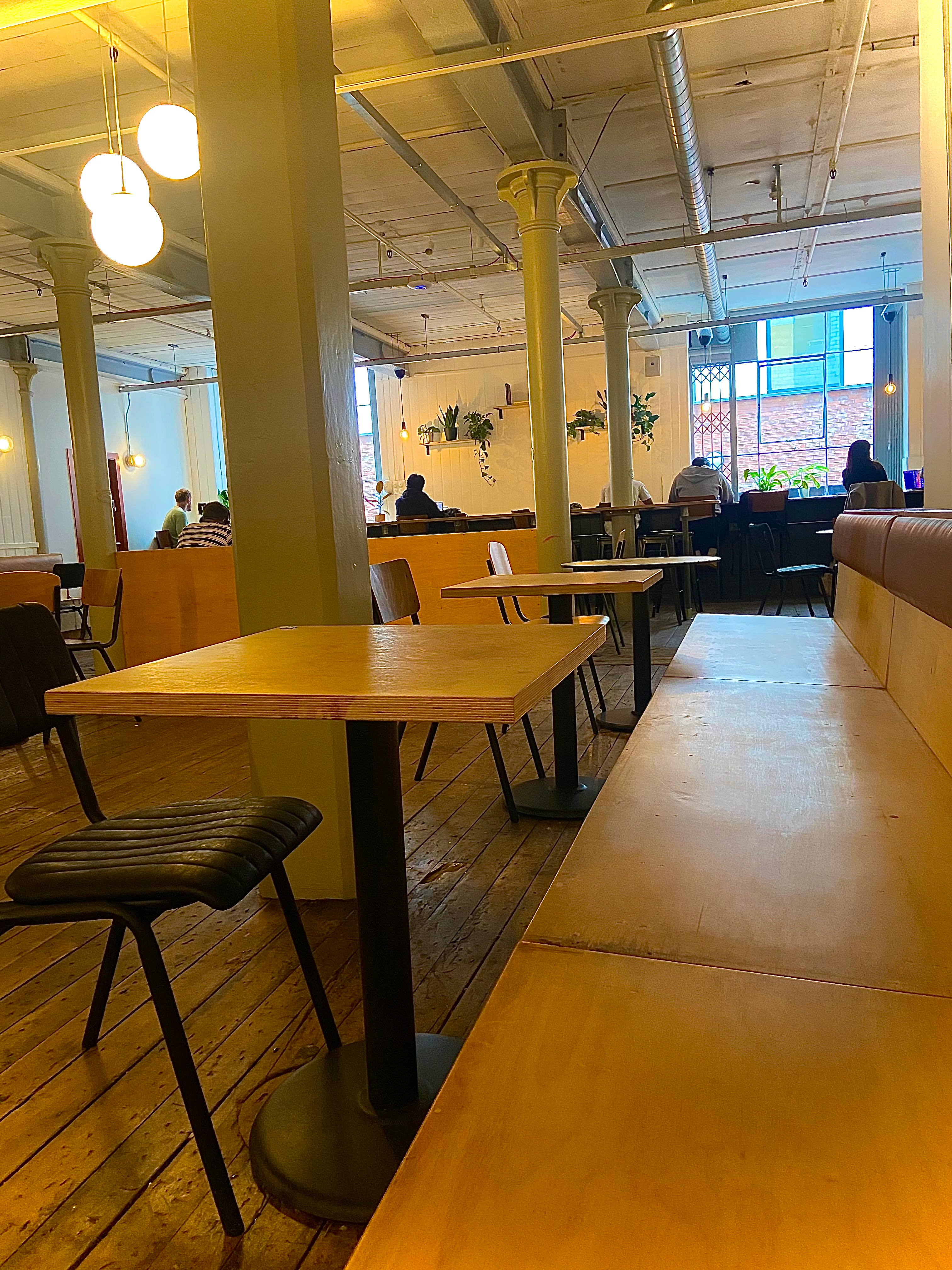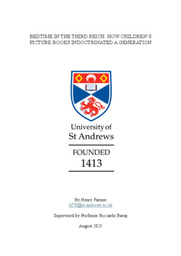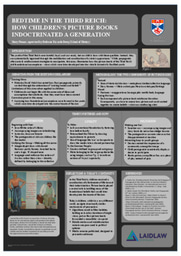An Ode to Writer's Block: Finding a way to Focus, One Brew at a Time

So, the six weeks of research are over. They have been, in fact, for nineteen days, and all that is left to do is write. Easy, right? Well, not quite. Somehow, in that time, I have rewritten an opening paragraph ten times, deleted innumerable Word documents, and stared blankly at a screen for more hours than I wish to admit. Every time I try to write, I am met with a muddle of anxiety and insecurity, and accompanying me at each stage have been the dreaded voices:
. “Are you really going to use that word?”
. “You are seriously going to open there?”
. “Wouldn’t anyone else write this better?”
Whilst I am being a bit dramatic, I have found myself unable to progress, wading through the same few lines again, and again, and again. Consequently, I have accepted the fact that a change is needed (but we shall return to this).
‘Bedtime in the Third Reich: How Children’s Picture Books Indoctrinated a Generation’, a project which led me to spend a month and a half reading literature written for six-year-olds. Ultimately, this turned into one of the most rewarding experiences I have had while attending St Andrews. Often, at university, complex topics will change weekly, shifting from the Act of Union to twentieth-century youth culture in a blink. However, Laidlaw offered a rare opportunity to study a single area in depth for a prolonged period.
Through my research, I learnt how literature in the Third Reich fostered an extremely limited set of traits in its youth. While antisemitism, militarism, and loyalty were all championed, critical capacities, such as independent thought, were actively inhibited. Methods of indoctrination, from the generation of norms to reward schemes, were all carefully implemented to mould children into the silent servants of Hitler’s Germany, to which end, they succeeded.
 Illustration: Ernst Heimer, 'The Experience of Hanse and Else with a Strange Man', The German Propaganda Archive, Calvin University Archive (11 November 2024), <https://research.calvin.edu/german-propaganda-archive/thumb.htm> [accessed 29 July 2025].
Illustration: Ernst Heimer, 'The Experience of Hanse and Else with a Strange Man', The German Propaganda Archive, Calvin University Archive (11 November 2024), <https://research.calvin.edu/german-propaganda-archive/thumb.htm> [accessed 29 July 2025].
Regarding the actual act of research, I was fortunate enough to find the process relatively smooth, having received ample support. My supervisor, Riccardo Bavaj, attended weekly meetings and even connected me with several doctoral students for further backing. Moreover, having a network of people to rely on in this year’s cohort, as well as the previous year’s, allowed me peace of mind. I knew that there were people I could rely on if things were not going smoothly. Like, for instance, in the first two weeks, when I struggled to find any substantive literature on propaganda techniques in children’s picture books. Or, when I was house-bound for a week due to hay fever, with the wind blowing dust down from the surrounding farms. Suffice to say, many a coffee break was had.
Now, however, people are gone. I am not in St Andrews, but in a rainy valley, far from any academic environment. Worst of all, I still needed to begin. So, how have I spent these past two and a half weeks of unproductivity? The mornings often began full of a delusional enthusiasm, accompanied by breakfast and a cup of tea. Following this, there was a move to the dining room table, where the notion of beginning still lingered. This thought, however, was quickly interrupted by the discomfort of the wooden seat jabbing into my back. Eventually, the deadly idea would enter my mind: “Maybe I should move to the couch?” Naturally, I would cave, and from that point, procrastination was the inevitable end as days turned into waste. Unlike the six weeks, I was struggling to find a productive routine. In all honesty, I was scared to begin. The pressure of a piece which tied together six weeks of research and an even longer preparatory period was intimidating. But, as a Laidlaw Scholar, this is not a good enough excuse to give up! Hence, a change.
Issue 1: Location
Solution: Move to Manchester
So far this week, I have dedicated myself to the one-hour and ten-minute commute to the city. There, I have done what every humanities student must: I have found a café. Not only has a more familiar work environment aided my productivity, but the simple inconvenience of returning home has also been an incentive. If I must travel over two hours every day, I have to make it worth it. The couch option simply no longer exists. From ten till three, I am glued to the seat of the Nomad café on Lever Street, focused solely on my output. It is refreshing.
Issue 2: Isolation
Solution: Talk, you shockingly have friends
The stark contrast between the presence of an academic community over the six weeks compared to its absence now has been a jarring change. No longer do you get to see others working in labs or at the Rusacks alongside you. Now, you are alone. But you are also wrong. Pick up the phone, call a friend and see that they have not begun either. What a relieving revelation. They may equally remind you that you still have a month. Not everything has to be written today. Take the foot off the pedal and enjoy the drive.
Issue 3: Perfectionism
Solution: Remember, people do multiple drafts for a reason
Essays are rarely written fully formed. Don’t mistake me, some are. There are those who plan to the degree that the sentences are already formed. I, however, am not that person. Just get the ideas down. Construct your perfectly imperfect sentences later. Give yourself a break and stop comparing yourself to the seasoned scholars you are not. Whilst you may get there one day, it is a process, and there is a long way to go.

Image: An image of the view from my seat in Nomad Cafe, Lever Street, Manchester.
So, where am I now? Well, when this is released at twelve o’clock, I should be once again sitting in the Nomad café with a pot of tea and my laptop for the third day straight. I have finally begun, but it has taken a while to get to this point. Still, by giving myself some time and actively focusing on ways to relieve the pressure, I can finally say that I am happy with where I am.
Laoptop open, I begin:
Woods have long been the setting for the stories we read to lull our children to sleep. From the works of the Brothers Grimm to those of Julia Donaldson and Axel Scheffler, the eerie ambience has both frightened and amazed, capturing the imagination of generations…


Please sign in
If you are a registered user on Laidlaw Scholars Network, please sign in
I believe in you Henry! You can do this and I can’t wait to read the final product. (I still have so much fly data to go through just so you know)
Great blog Henry! And do not worry I think that we are all facing this same procrastination hurdle now that we don't have the Rusacks study sessions to keep us in check. Glad that you have found your new Space though and I have no doubt you have got this :).
Hi my friend :) although I've already read this a couple times, it was an absolute pleasure to read it again and hear your voice shine through each word. You've done absolutely brilliantly through the programme through far and it's been such a joyful experience to see you go through it as your friend, and to hear about all your thoughts and deep-dives and textual adventures. You are a fantastic researcher and scholar and I have no doubt the outcome of this project is going to be fantastic. Can't wait to hear more from you!!
You may not have the regularity of group study sessions, but there will always be the comforting regularity of a brew... or five! I'm glad you're getting in to the swing of things, and glad to hear we all find relief in our universal shared procrastination.
This is so beautifully written and achingly relatable! Very much looking forward to reading the final product.